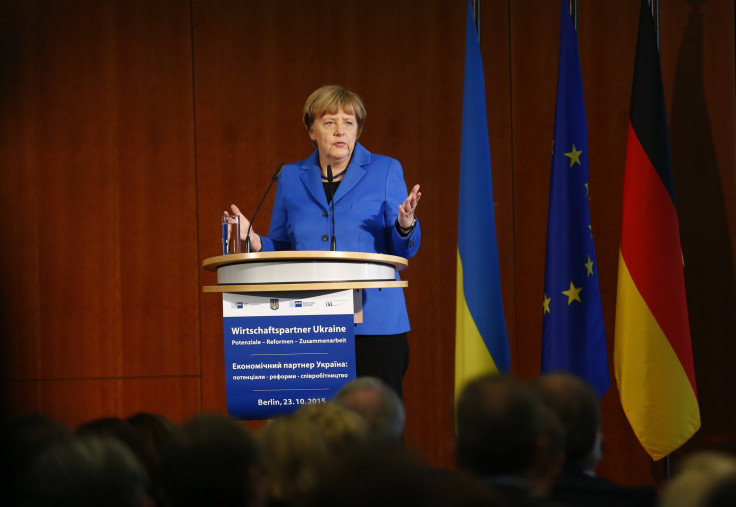Amid China, Russia Economic Slowdowns, German Manufacturing Growth Continues To Lag

China’s economic slowdown has continued to reverberate across the globe, with Germany becoming its latest victim. German manufacturing slowed in October, giving that sector its least amount of growth in five months, Bloomberg reported Friday. The newest purchasing managers’ index, which shows the health of the manufacturing sector, fell to 51.6 from 52.3 in September.
“Today’s numbers signal a note of caution for German manufacturers,” said Oliver Kolodseike, an economist with Markit, the financial service group that released the numbers Friday. “Moreover, the combination of rising stocks-of-finished-goods levels and slower new-order growth suggests that companies may scale down their production in coming months.”
Chinese demand for new orders has fallen following the country’s currency devaluation in August, which triggered global market sell-offs. In addition to China, Russian demand for manufactured goods has also declined, with the Russian economy reeling from low oil prices and sanctions imposed by Western states on it following the annexation of Crimea from Ukraine in March 2014.
Job creation in manufacturing hit an eight-month low. However, the service sector hit a five-month high, then say it hit a 7-month high, helping the eurozone’s expansion in October, Markit said in its report.
“Looking ahead, the forward-looking indicators point to a risk of growth slowing in November,” the Markit release said. “Service-sector expectations of activity in the year ahead hit a 10-month low, while the manufacturing orders-to-inventory ratio dipped to its weakest for nine months.”
The European Central Bank has already warned that another stimulus may come in December as the slowdown has affected the union’s weaker economies as well.
The manufacturing slowdown comes at a moment of high political tensions in Germany and the EU as the 28-member union attempts to find a cohesive policy solution to the ongoing refugee crisis. Thousands of refugees fleeing wars and repressive states in the Middle East and North Africa have continued arriving in Europe daily for the past several months. German Chancellor Angela Merkel’s open-door migration policy has driven her approval rating to a four-year low.
© Copyright IBTimes 2025. All rights reserved.






















